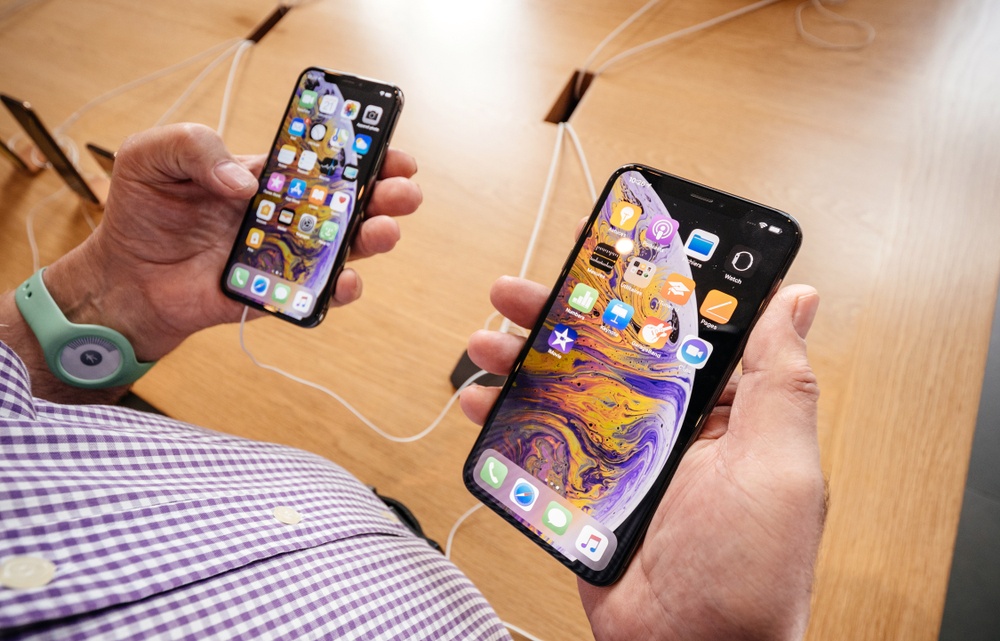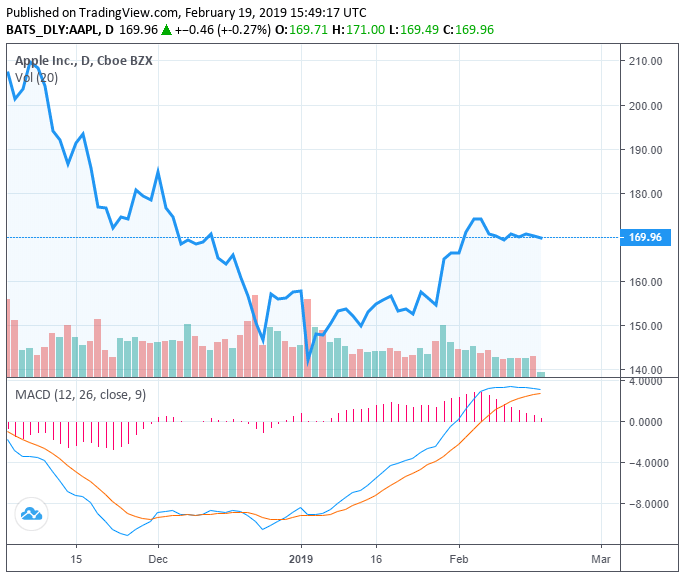Apple Realizes its iPhone Problem But Pivot Sees Major Challenges

Sluggish iPhone sales created headwinds for Tim Cook and company, but the firm's "consumer staple" status will ensure future growth. | Source: Shutterstock
Apple, the $801 billion electronics giant, is reportedly initiating major changes in its executive team by altering roles and establishing new strategies.
According to The Wall Street Journal , the move is a response to the lackluster sales figures of the iPhone in key markets including China.
Last month, Apple CEO Tim Cook released a public letter to investors describing the company’s struggle in China, mainly attributing it to geopolitical risks including the trade war with the U.S.
Some analysts stated that the lower-than-expected sales of the company’s flagship product were largely triggered by the plateauing smartphone technology development.
Smartphones have become exceedingly sophisticated in the last few years and as such, fewer users now feel less compelled to pay a hefty price to acquire new models.
Apple Figured Out the Problem But its Solution is Questionable
Former employees of Apple have reportedly said that CEO Tim Cook has been expecting smartphone technology development to plateau since more than nine years ago.
Apple analyst and Loup Ventures managing partner Gene Munster told WSJ that Apple is preparing for the next growth phase of the company after the era of the iPhone.
“This is a sign the company is trying to get the formula right for the next decade. Technology is evolving, and they need to continue to tweak their structure to be sure they’re on the right curve,” Munster said.
To penetrate into highly competitive markets like China with the iPhone, Apple has had two choices: lower the pricing of its iPhone to compete against alternatives like Huawei or adapt to the Chinese market and undergo significant changes.
Neither has been a viable option for Apple which prioritizes branding, technological development, and premium models.
As former Apple retail executive Carl Smit said last month:
They’re not adapting quick enough. These apps and systems are how people communicate in China, and if you don’t have seamless integration, the Chinese manufactures have an edge.
The solution Apple has come up with to set up the company for the next decade is its services business.
The Apple App Store, iTunes, and Apple Pay are solid, widely utilized, and competitive platforms used by hundreds of millions of users.

By 2020, Morgan Stanley expects its services business to reach $50 billion in sales, which could replace iPhone sales as the company’s main revenue driver, which is what Apple would want in the long-term.
The hurdle Apple has to go through in the upcoming years is the exponentially growing user bases of competing platforms in the likes of Spotify and Netflix that dominate the streaming business.
Apple is planning to spend over $1 billion on original shows by featuring actresses like Reese Witherspoon to bump up its streaming venture.
But, 9 out of 10 consumers in the U.S. already utilize Netflix for streaming and strong alternatives such as Amazon Prime Video and Disney’s new streaming business are on the way up.
Jonathan Pirc, Founder and Managing Partner of Lab42, told Forbes :
On average, consumers use between two and three streaming services, and one of them is almost always Netflix. Even with multiple streaming services available, Netflix has clearly staked out the dominant position, with nearly 9 out of 10 American streamers using Netflix.
Even when consumers use a variety of streaming services, Netflix remains the most popular. It’s a testament to not only being one of the first to market, but also their innovation and investment in original content.
Apple Has a Strong Chance
Apple has the platforms, applications, tools, resources, and a loyal consumer-base to expand its services business and compete against dominant forces like Spotify, Netflix, and Amazon Prime Video.
But, some of the concerns from analysts stem from the thought that the company may have started a little too late.